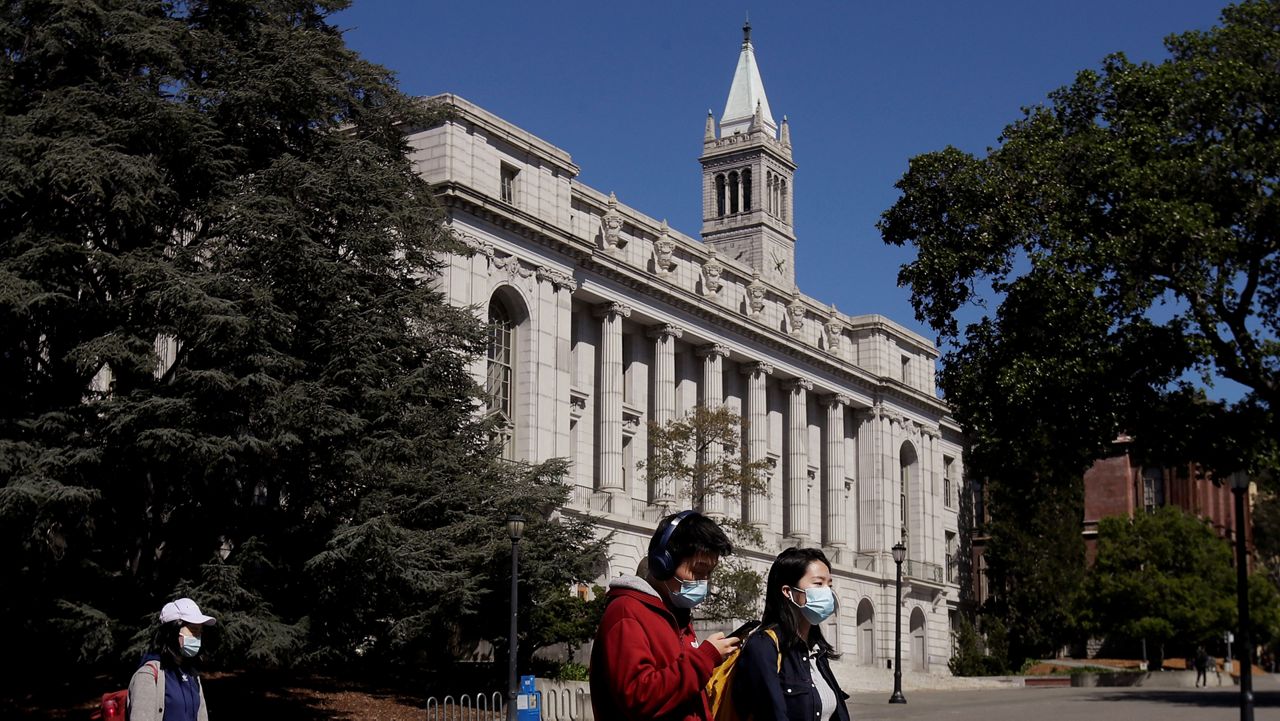SACRAMENTO, Calif. (AP) — California Gov. Gavin Newsom signed a new law on Monday that stops one of the most prestigious U.S. universities from being forced to turn away thousands of students from its incoming freshman class.
Just 11 days ago, the state Supreme Court ordered the University of California, Berkeley, to reduce its enrollment. The court sided with a neighborhood group that had sued the school, arguing university officials did not consider how adding more students would affect the environment, as required by a state law.
The California Legislature on Monday voted unanimously to change the law, sending a bill to Newsom, who quickly signed it. The new law gives schools more time to comply before judges can order them to reduce enrollment. It's retroactive, meaning it reverses the prior court's ruling affecting UC Berkeley.
“I’m grateful to the Legislature for moving quickly on this critical issue – it sends a clear signal that California won’t let lawsuits get in the way of the education and dreams of thousands of students, our future leaders and innovators,” Newsom said.
The law makes changes to the California Environmental Quality Act. Passed in 1970, the law requires state and local agencies to evaluate and disclose significant environmental effects of projects and to find ways to lessen those effects.
But in the decades since its passage, critics say the law has frequently been used less to protect the environment and more to block unwanted development.
In the UC Berkeley case, the nonprofit group Save Berkeley’s Neighborhoods had sued the university, arguing that adding more students would worsen the housing shortage and increase rents for everyone in the San Francisco Bay Area city.
UC Berkeley, like much of the rest of California, has an affordable housing problem resulting from decades of under-building. On-campus housing at the school is limited, and many students live off campus. Rents are expensive, especially for apartments closer to campus, while residents grumble over the added traffic, noise and housing costs brought by an increased student body.
The court agreed with the neighborhood group and ordered the university to stop construction of more housing and classroom space and to keep its enrollment at the same level as the 2020-21 school year. School officials said that meant they had to reject about 2,600 students for the upcoming freshman class who would have been accepted.
The ruling stunned lawmakers, parents and anxious applicants awaiting to hear if they would be admitted this fall. University officials and students pleaded with state lawmakers for an emergency fix.
Lawmakers in the state Legislature dominated by Democrats responded with unusual speed, writing and passing a bill in just 11 days. Most other bills take up to eight months before they become law.
“This would have shut the doors of college education for thousands of Californians,” said Assemblymember Kevin McCarty, a Democrat from Sacramento. “Our economy requires more college graduates. We know that college is the ticket to the middle class.”
Lawmakers hoped the bill would end the controversy. But Phil Bokovoy, president of Save Berkeley’s Neighborhoods, said “this poorly drafted bill will result in more litigation.”
“UC Berkeley does not have the capacity to handle more students,” Bokovoy said. “We don’t want new students to have to live in their cars.”
UC Berkeley Chancellor Carol Christ said the school is “committed to continuing our efforts to address a student housing crisis through new construction of below market housing.”
The law signed by Newsom, also a Democrat, is narrowly tailored to fix the specific problem at UC Berkeley. But it does not include broader reforms called for by lawmakers from both parties.
Sen. Scott Wiener, a Democrat from San Francisco, said the environmental protection law has been “distorted beyond recognition to empower anyone with enough money to hire a lawyer to delay or block even the most environmentally sustainable project" — including blocking or delaying the construction of bike lanes, public transportation and clean energy projects.
Republicans agreed, with Assemblymember Vince Fong saying that frequently, “the reasons to stop the projects have nothing to do with the environment.”
“A growing consensus on both sides of the aisle recognize the need for ... reform. But the question remains, is there the political will to make that happen?” Fong said.
Assembly Speaker Anthony Rendon voted for the bill but said he does not support creating more exemptions in the environmental law.
“We must act today in a cautious fashion to make sure the university can admit deserving applicants this year,” he said.



